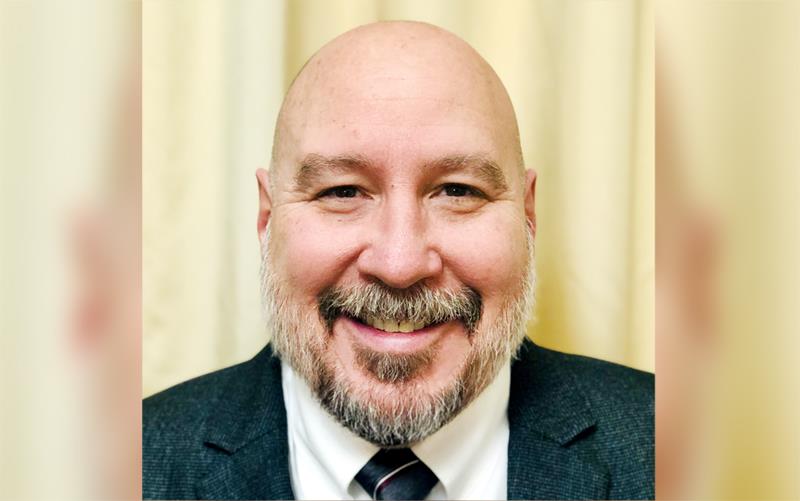(MENAFN- The Peninsula)
Being a parent of a child who has been diagnosed with special needs is a lifelong struggle – a journey of patience, perseverance, and sacrifice.
“You will not realise your innermost strength until you have a child with special needs,” says Sally Y Al Chalouhi, a counselor at Awsaj Academy – part of Qatar Foundation's Pre-University Education, which caters for students with mild to moderate learning challenges.“And it will either make you give up or it will help you recognize your strength, every day. You are managing situations that other parents would think it's impossible!
“The pressures experienced by parents of children with special needs differ according to the child's condition – whether they suffer from behavioral problems, are unable to communicate, or have a mental or physical disability. And these determine the magnitude of the challenges ahead,” Al Chalouhi says.
Parents may blame themselves for their child's disability says Al Chalouhi, and this may lead to denial – with parents justifying any shortcomings in their child because of their inability to control the situation.“They fear the obstacles awaiting them such as the child's medical, psychological and material needs, and how society will accept them. This can leave parents feeling overwhelmed and exhausted. Acceptance must come from them first – when they accept their child's disability, they will be ready to confront all the challenges.”
Awsaj Academy helps to create relationships between doctors, specialists, and parents – providing support groups for families whose children have the same condition, as well as personalised plans. This is done hand-in-hand with families, as the school believes that parents play an integral role in developing their child's skills.
For parents to maintain good mental health, they must seek support and connect with others who can relate with their journey, and also try to integrate their children into society to help them become independent and confident.
"A child with special needs may face medical and psychological challenges finding it difficult to form friendships, as well as fearing society and the future. This is why the role of the guardian in promoting good mental health in the child is important,” Al Chalouhi says.
The counsellor suggests listening to the child, asking about their condition and the challenges they face – reminding them of their strengths and achievements, and to celebrate small successes. Adding that encouraging them to take care of themselves, exercising, developing new skills, and making friends is important.
If a child's mental health is poor, or begins to deteriorate – from anxiety, frustration, isolation, lack of sleep, or disordered eating – they may not be able to carry out daily activities. According to Al Chalouhi, it is important to seek help at this point.

Jody R Roberson
Awsaj Academy has launched several programs and initiatives to achieve this goal – as well as help promote good mental health among parents.
According to the counsellor Al Chalouhi, the mother's psychological condition directly affects her child.
If a mother suffers from stress, this can increase tension inside the home and this can affect a child's mental health.
“Mothers may show symptoms of depression, caused by their feeling of loss of control, and finding an escape may be one of these symptoms, with the mother avoiding being around her family, escaping from her responsibilities,” Al Chalouhi explains. Supporting a mother's mental health – and encouraging her to persevere in the face of difficulty – is essential in protecting her and her child from mental health disorders.
Improved self-esteem and self-confidence will boost a mother's mental health, which in return reflects on her children – and a child needs to be surrounded by positive energy, optimism, and belief in a better future. According to Al Chalouhi, this is achieved when she has the opportunity to work, pursue studies, and pursue her ambitions.
While, Jody R Roberson, a Psychologist from The Learning Center (TLC) – a specialised centre for supporting students with mild to moderate learning needs across Qatar Foundation (QF) schools, and part of QF's Pre-University Education – explains the benchmarks that parents should consider when assessing their child.
The pandemic has changed the rate at which students progress in many areas, such as reading fluency, according to Roberson.“Because the teaching formats have changed, it is normal to have a wider diversity among children, and gaps in their learning,” he says. Yet, it is essential to note that a learning gap differs from an actual learning difficulty. And they can be overcome with additional support, additional practice, and tutoring.
“An additional consideration should be given to children that are second language learners,” Roberson says. Children in Qatar are learning two different languages simultaneously, such as reading and writing from right to left in Arabic and left to right in English, which poses a challenge for many students.
“Having both a social language and an academic language in Arabic and English can often appear as a delay in processing when it is actually just the brain switching between languages,” Roberson said.
MENAFN28102021000063011010ID1103062918
Legal Disclaimer:
MENAFN provides the information “as is” without warranty of any kind. We do not accept any responsibility or liability for the accuracy, content, images, videos, licenses, completeness, legality, or reliability of the information contained in this article. If you have any complaints or copyright issues related to this article, kindly contact the provider above.